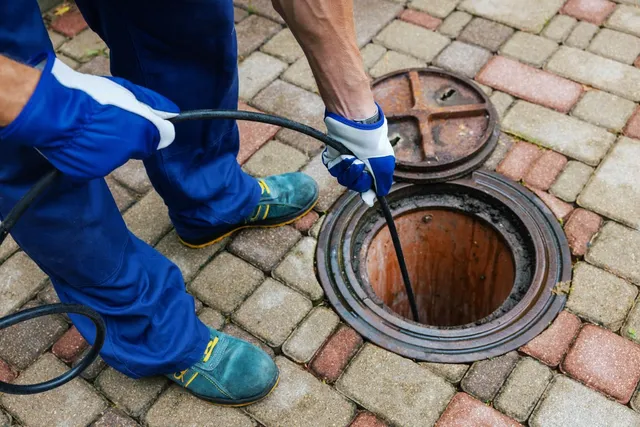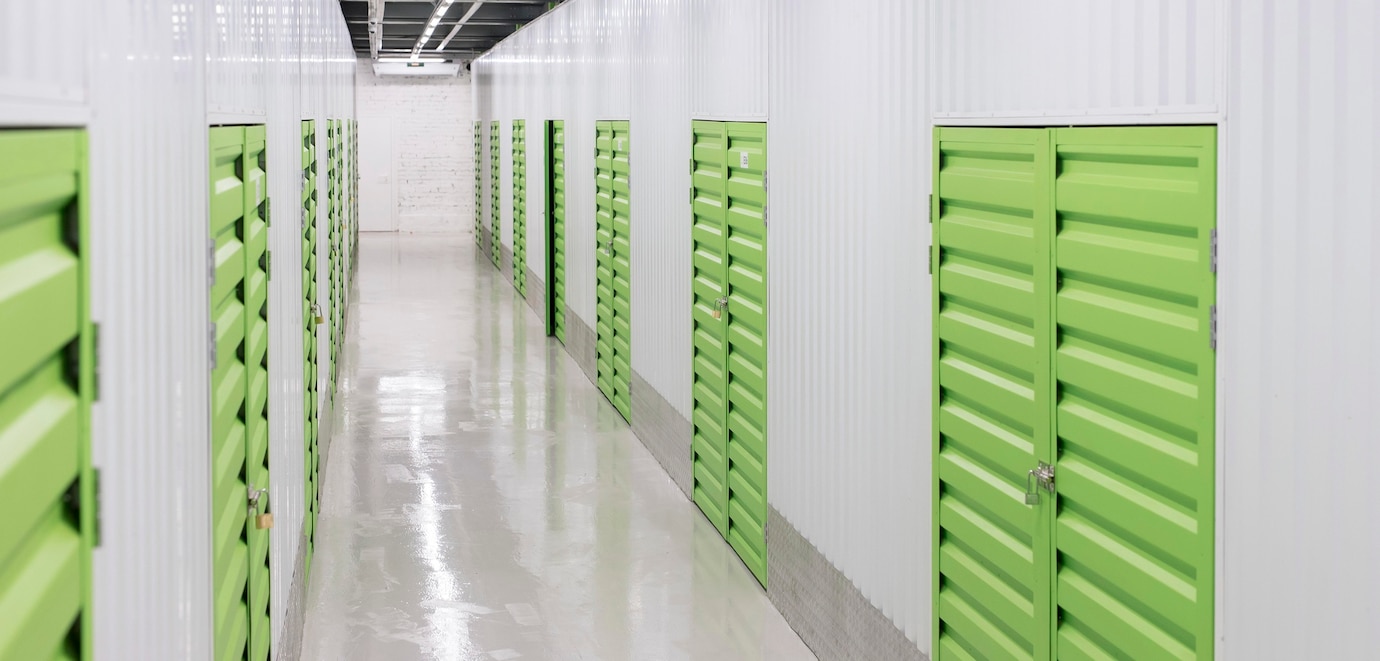Home
7 Benefits Of Hydro Jetting For Clearing Clogged Drains and Pipes
Published
2 years agoon
By
iamkartik
Are you experiencing frequent clogs in your pipes and drains? Are you tired of using chemicals and plungers to clear them out, only for the clogs to keep recurring over and over again? Fret not, for hydro jetting is the solution you’ve been searching for.
Hydro jetting clears pipes and drains by relying on water pressure alone. It’s a process that involves a high-pressure hose with a specialized nozzle that can blast out water at pressures of up to 4000 psi. This force is strong enough to clear out even the most stubborn clogs, and the technique has become increasingly popular in recent years.
But what benefits does hydro jetting offer over more traditional methods, such as using a plunger or drain snake? There are numerous reasons why hydro jetting is a superior method to clear clogs. In this blog post, we’ll be exploring the top 7 benefits of hydro jetting to help you understand why it’s a more effective option.
1. Very Versatile
Most people think that hydro jetting is only useful for commercial plumbing jobs. However, this method is equally effective in fixing residential plumbing issues of all sizes. Hydro jetting uses high-pressure water streams to clear clogs and blockages in your pipes, making it an ideal solution for removing stubborn debris that can’t be cleared through traditional snaking methods. Grease, sludge, tree roots, and food remains are just a few examples of substances that can cause blockages in your pipes.
Hydro jetting is safe for all types of pipes, including steel pipes, cement sewer lines, cast iron pipes, clay pipes, and resin-based pipelines. The high-pressure water streams are powerful enough to clear out all kinds of debris and keep your pipes clean for a long time.
Traditional methods, such as snaking, can sometimes damage your pipes, but hydro jetting is a safe and effective solution that doesn’t cause any damage. It’s also a cost-effective solution in the long run, as it clears out all the debris and prevents future blockages.
2. Non-Invasive
One of the biggest advantages of hydro jetting is that it is non-invasive. Unlike traditional methods of clearing clogs that require digging trenches to access the pipes, hydro jetting can be done through the cleanout, an access point specifically designed for cleaning and inspection. This means you won’t have to dig up your garden or landscape to access the clogged pipelines. Hydro jetting is an environmentally friendly solution that won’t harm your property or disrupt your daily routine.
Hydro jetting is a cost-effective solution compared to traditional methods of clearing clogs. Since there is no need to dig trenches or replace damaged pipes, hydro jetting can save you money in the long run. It is also a time-saving solution since it requires less time to complete compared to traditional methods. This means you can return to your daily routine faster without unnecessary delays.
3. Environmentally Friendly
Hydro jetting uses pressurized water to clear out clogged drains and pipes. While it uses a lot of water, it is a much more environmentally friendly option than chemical procedures used in other techniques. The lack of chemicals in hydro jetting means that even people living near lakes or rivers can use it without causing any harm to the environment.
Unlike other drain cleaning methods, hydro jetting does not cause any damage to the environment or the pipes themselves. Chemicals used in other methods have been known to corrode pipes over time, causing leaks and further environmental damage. Hydro jetting, however, only uses water to blast away clogs, leaving pipes intact and in good condition.
4. Highly Effective
Hydro jetting is a highly effective plumbing solution that can clear out all the traces of clogs and debris. Believe it or not, there isn’t any obstruction that hydro jetting can’t remove. It easily washes away the most stubborn blockages, allowing the water to flow smoothly. The high pressure level is enough to tackle even the smallest dust particle.
One of the biggest advantages of hydro jetting is that it can easily access hard-to-reach places. It’s common for older homes to have a plumbing system that’s either hard to navigate or fragile. The flexibility of hydro jetting allows your plumber to handle your fragile pipes without damaging them in the process. Hire the best plumber from Oslo Rørlegger.
Hydro jetting is also a great preventive measure. Regular hydro jetting can keep your pipes clean and clear, preventing future clogs and blockages. It’s perfect for commercial properties with high traffic restrooms or for residential properties with many people using the same plumbing system.
5. Faster and More Sanitary
Hydro jetting is a powerful method of cleaning pipes that uses high-pressure water to dislodge and flush out debris. This method is far more effective than traditional plumbing methods, which can leave debris behind and fail to clear clogs completely. In addition, hydro jetting is faster, which means that your plumber will spend less time on the job and less time coming into contact with sewage and other contaminants.
One of the biggest advantages of hydro jetting is that it is a more sanitary method of unclogging pipes. Traditional plumbing methods can involve direct contact with sewage and other contaminants, which pos health risks to the plumber and the property owner. In contrast, hydro jetting uses high-pressure water to flush out debris, meaning there is less contact with sewage and other contaminants. This makes it a much cleaner and safer method of clearing clogged pipes.
6. Prevents Future Clogs
Hydro jetting is a process where high-pressure water is used to clean the inside of pipes. This process effectively removes even the toughest clogs, including tree roots, grease, and mineral buildup. Hydro jetting is a vital first procedure in almost every case involving pipe lining or section point repair. Lining material cannot be applied when residuals are coating the inside walls of your pipe. This shows how efficient hydro jetting is in cleaning clogged pipes.
However, hydro jetting is also an effective preventive care application. Hydro jetting to remove clogs during their early stages can help avoid costly pipe damage. Leaving minor clogs unattended can cause plumbing system failures in a short time. In this case, proactive hydro jetting can help you resolve minor issues before they worsen. This can be helpful, especially when moving into a new home.
A plumber can point out any potential issue with your pipe through video inspection. This prevents future clogs from building up inside your drain. Hydro jetting is an environmentally friendly way to clean your pipes, without using harsh chemicals that can harm the environment. It is also a cost-effective alternative to pipe replacement.
7. Cost Effective and Long Lasting
If you want a long-lasting solution, consider hydro jetting. Hydro jetting is a method of cleaning pipes using highly pressurized water to clear out blockages. While it may cost more upfront than other cleaning procedures, it is a guaranteed way to clear out your entire plumbing system and not just a part of it. This means you won’t have to invest in another cleaning product soon.
Not only is hydro jetting cost-effective, but it also offers long-lasting results. The highly pressurized water that passes through your pipes makes it difficult for grime and debris to build up. This means you’ll only need to clean your pipes less often, and your plumbing system will work more efficiently for longer.
If you still need convincing, consider the environmental impact. Liquid drain cleaners contain harsh chemicals that can be harmful to the environment. Hydro jetting, on the other hand, uses only water to clean out your pipes, making it a more eco-friendly option.
To sum up
Hydro jetting is a reliable and cost-effective solution for clearing clogged drains and pipes. Whether it’s a residential or commercial plumbing issue, hydro jetting can help clean and clear your pipes, allowing for better water flow and preventing future blockages. So, if you need plumbing assistance, don’t hesitate to explore the benefits of hydro jetting and see for yourself just how effective it can be.
You may like
Home
Solar Power Experts: What You Must Consider Before Hiring
Published
3 weeks agoon
December 6, 2024By
danielclarke
Have you considered integrating solar energy into your home to lighten the load on both the environment and your energy bills? If you’ve answered yes, it’s quite likely that you’ve started diligently researching online, sifting through countless forums and reviews, only to realize you’re somewhat lost in a whirlwind of information. But worry not, we’re here to simplify all those complexities of solar energy and guide you through the process. Today, we’ll take you through some key points you need to be aware of before hiring solar installers, who will help you embark on your sustainable energy journey.
As the world becomes steadily eco-conscious, homeowners are seeking renewable, sustainable solutions to lessen their carbon footprint and foster a cleaner environment for future generations. Solar energy provides one such alternative – a viable path that reduces the reliance on fossil fuels and plays a significant role in combating climate change. However, the mere desire to engage in this noble cause is not sufficient; it’s the execution part that often leaves homeowners feeling a tad overwhelmed.
In this post, we’ll explore the complexity of installing solar energy systems, pitfalls to avoid, and how to choose the best solar installers in an overcrowded market. From discussing the core benefits of this technology to the intricacies of installation, we aim to arm you with all the crucial knowledge needed for this significant decision. Let’s dive in.
Unravelling the Dynamics of Solar Energy and Its Importance
Understanding the science behind solar energy can be akin to navigating an intricate maze. But grasper the core principles lays the foundation for a fruitful journey towards harnessing this renewable power source. Solar energy harnesses the sun’s power to generate electricity, utilizing PV (photovoltaic) systems or solar thermal systems.
However, the translation of how panels on your rooftop can power your entire house might still seem elusive. What’s the magic link? Your chosen solar installers play an instrumental role in this transformation. They configure and install these panels, optimizing their performance to ensure that you can enjoy green, sustainable energy in your home.
More than just a source of electricity, solar energy represents a broader commitment to the planet and its future. Every household that converts to this clean and renewable energy source contributes to the fight against climate change. Your decision to install solar panels is an essential part of this larger cause.
Decoding the Solar Installation Process
You’ve probably already wondered exactly how complicated the solar installation process is, and the answer largely depends on the expertise of the solar installers you hire. A competent solar supplier will guide you through site assessment, system design, and installation.
The first step entails assessing your property to determine the most suitable location for the panels. Factors such as shade, roof angle, and structural stability play a crucial role at this stage. Next, the team designs a system tailored to your specific needs, factoring in overall energy usage and peak demands.
Installing the solar panels is the next major step. Your installer will attach a mounting system to your roof, on which the panels will be secured. Following this, the team will install inverters that convert DC output into a usable AC form.
Choosing the Right Solar Installer
Choosing the right solar installer is a pivotal step in your solar energy journey. While a proficient installer will ensure a smoothly run project with maximum efficiency, a hasty decision could result in poor workmanship and unnecessary expenses.
It’s advisable to seek a company with a good track record, certified credentials, and positive client feedback. Ensure the company has substantial experience in installing the specific type of solar system you’re considering. Similarly, it’s imperative they willingly answer your queries, clarify any doubts and go the extra mile to ensure your satisfaction.
Moreover, the installer should offer a comprehensive service – from initial consultation to post-installation care. They should be ready to handle maintenance, and necessary repairs and be capable of providing comprehensive advice on incentives and rebates available to you.
Unearthing the Benefits and Hitches of Solar Energy
Undoubtedly, solar energy brings a plethora of benefits – clean and renewable power, decreased energy bills, and reduced dependency on the grid. It’s a long-term investment that often pays for itself over time. However, like any substantial investment, it comes with its share of challenges.
Cost is a significant consideration. The upfront expense can be sizeable, although various financial incentives (like tax incentives and rebates) can soften the blow. The system’s efficiency can also be affected by factors like geographical location and weather conditions. Not forgetting, transitioning to solar energy also necessitates a certain degree of structural adjustment to your home.
Despite these challenges, the long-term benefits usually overshadow the initial hurdles. It’s essential to enter this journey with your eyes wide open, armed with adequate knowledge and guidance, underscoring the importance of competent and reliable solar installers.
Keeping the Momentum Up: The Path Post Installation
The journey doesn’t end with the installation of the solar panels. It’s a profound commitment to the environment that calls for continuous effort and smart maintenance. Regular cleaning and checking for damages will ensure your system’s longevity.
Likewise, regular monitoring of the system’s output will help you optimize your energy usage. Your solar installer should provide practical training on system monitoring and troubleshooting as well. By maintaining a healthy relationship with your installer, shifting to solar power can be an incredibly rewarding experience.
Conclusion
As global climate change continues to pose serious environmental challenges, the importance of renewable energy has never been greater. Solar power presents a viable solution and a significant step towards sustainable living. Recognizing the pivotal role professional solar installers play in this transition, making the right choice is essential.
Through comprehensive site assessments, system design, and installation, proficient installers make the process seamless and efficient. The immediate hurdles might seem daunting, but let it not overshadow the greener side – a cleaner environment, reduced bills, and for that feeling of being part of a much larger, impactful cause.
So, while looking for solar installers, ensure they’re bringing not just their technical skills, but also their passion for environmental stewardship to the table. After all, transitioning to solar energy is not merely an upgrade of your home’s energy source, but an invaluable investment in our collective future.
Business
The Pros and Cons of Renting a Storage Unit: Is It Right for You?
Published
4 weeks agoon
November 27, 2024By
danielclarke
Renting a storage unit has become a popular choice for individuals and businesses facing space constraints or in need of secure, accessible storage. Whether it’s for seasonal items, business inventory, or moving purposes, a storage unit offers flexibility and control over belongings.
As convenient as it sounds, renting a storage unit isn’t a one-size-fits-all solution. To decide if this option fits your needs, let’s explore the benefits and drawbacks of renting a storage unit, the types of self-storage solutions available, and how to find the best option for you.
Why Consider Renting a Storage Unit?
The appeal of storage units lies in their ability to provide extra space, security, and peace of mind. For those overwhelmed with clutter or seasonal items or lack storage space at home, a storage unit can be a lifesaver. Understanding the trade-offs of renting is essential for making an informed choice.
What Are the Benefits of a Storage Unit?
- Extra Space and Organisation: The most immediate advantage of renting a storage unit is its extra space. This option helps declutter your home, creating a more organised living environment without discarding items that may be valuable or hold sentimental value. For businesses, extra space for inventory can streamline operations and allow for easy scaling without investing in costly commercial property.
- Secure Storage for Valuables: Modern storage facilities prioritise security with features such as surveillance cameras, gated access, and on-site staff. This makes them an ideal option for safeguarding valuable or irreplaceable items. For individuals who travel frequently or live in shared spaces, having a secure storage unit can be invaluable in keeping possessions safe.
- Flexible Self-Storage Solutions: Many facilities offer a range of unit sizes and types, catering to diverse needs. Climate-controlled storage units protect temperature-sensitive items like electronics, furniture, and documents from humidity and extreme temperatures. 24/7 access storage units also allow customers to retrieve their belongings anytime. This is helpful for business owners who may need off-hours access.
- Temporary Storage During Life Transitions: Life events like moving, renovating, or expanding a family often require temporary storage. Renting a unit during these transitions can provide a reliable place to store items without the pressure of deciding what to keep or discard immediately. The flexibility of short-term and month-to-month leases makes it an adaptable solution.
Pros of Renting Storage Units
- Convenient Access: With options for 24/7 access storage units, renters have the flexibility to access their belongings at any time, which can be particularly useful for business inventory or personal items stored off-site.
- Cost-Effective for Short-Term Needs: Storage units are often more affordable than larger apartments or commercial leases for people facing temporary space constraints, such as during a move.
- Adaptable Space Options: Storage facilities often provide units in various sizes, making it easy to scale up or down as needed. Seasonal equipment, sports gear, and holiday decorations are common items stored here, freeing up valuable home space.
What Are the Drawbacks of Renting a Storage Unit?
- Monthly Costs Add Up: Renting a storage unit can be a recurring expense, and costs vary based on size, location, and amenities. For those looking to store items long-term, it’s essential to weigh the monthly fees against the value of the items. Over time, storage fees can add up, and sometimes the expense may outweigh the convenience.
- Potential for Clutter: While a storage unit can help declutter your home, it can also lead to an “out of sight, out of mind” mindset. Without a system for periodically reviewing stored items, storage units may become an accumulation of items that are rarely, if ever, used. This can result in paying for space filled with items that might be better sold, donated, or discarded.
- Limited Climate Control in Basic Units: Basic storage units are not climate-controlled, which means items like wood furniture, electronics, and delicate fabrics may be susceptible to damage from humidity, extreme temperatures, or pests. For those storing valuable or sensitive items, opting for climate-controlled storage is essential but may come at a higher price.
- Distance and Accessibility: Unlike home storage, accessing items in a rented storage unit requires travel. While facilities are generally located conveniently, retrieval still requires some planning. If items in storage are needed frequently, the inconvenience can outweigh the benefits of storing them off-site.
How to Decide if Renting a Storage Unit is Right for You
- Assess Your Needs: Take a close look at what you need to store, how long you expect to store it, and how often you’ll need access. If your storage needs are temporary or seasonal, renting might be ideal. However, if you’re considering long-term storage, ensure that the cost aligns with the value of the items being stored.
- Consider the Types of Storage Units: Storage facilities, like those at Storage Units Coffs Harbour, often offer varied options, from standard to climate-controlled units and 24/7 access storage. Climate-controlled storage may be necessary for items like artwork or electronics to prevent damage, especially in regions with extreme weather.
- Factor in Location and Accessibility: Choose a storage facility close to home or work if you need regular access. Otherwise, opting for a more affordable facility farther away might make sense if access is less frequent. Facilities with 24/7 access benefit for business owners needing off-hours entry to their inventory.
- Evaluate Costs and Long-Term Value: Monthly storage fees can range widely, so comparing rates and contracts is crucial. Calculate the total cost if you plan to store items for the long term. Sometimes, the cumulative cost of storage may exceed the value of the items stored, making it more practical to downsize belongings or find alternative storage options.
Conclusion
Renting a storage unit can be a practical solution for those needing extra space, secure storage, or temporary accommodations for their belongings. The costs, potential for clutter, and need for careful planning mean it’s essential to test whether it’s the right choice. By assessing your storage needs, selecting the appropriate type of unit, and reviewing costs, you can make an informed decision that maximises the benefits while minimising the drawbacks. Storage units offer a balance of convenience and security. But as with any investment, it’s best to ensure it aligns with your unique needs and budget.
Business
Land Valuation: What Every Property Owner Should Know
Published
5 months agoon
August 4, 2024By
danielclarke
Land valuation is a crucial aspect of property ownership that every landowner should understand. It determines the property value for various purposes, including taxation, sales, and development. As of 2023, the median land value per square metre in Sydney reached approximately AUD 2,500. This high valuation reflects the intense demand and limited supply in urban areas, driving significant capital growth for landowners over the past decade. This trend underscores the robust investment potential of land ownership in Australia’s major cities.
This guide mentions the key elements of land valuation, the process involved, the importance of statutory land valuation, unimproved value, property valuation objections, and more.
-
Understanding Land Valuation
Land valuation determines the value of a piece of land. This valuation is essential for several reasons, including calculating property taxes, assessing market value for sale or purchase, and planning for development. Various factors influence land valuation, like location, size, zoning, and future development.
-
Statutory Land Valuation
Statutory land valuation is a government-mandated land value assessment used for taxation purposes. The Valuer-General, an official appointed to oversee land valuations, conducts these assessments. The value determined through statutory land valuation is used to calculate property taxes and rates.
-
Unimproved Value
A critical component of statutory land valuation is the unimproved value, which refers to the value of the land in its natural state, without any buildings, structures, or improvements. Understanding the unimproved value is essential for property owners, as it forms the basis for land tax assessments and other statutory obligations.
-
The Land Valuation Process
The land valuation process involves several steps to ensure an accurate and fair assessment of property value.
-
Property Assessment
Property assessment involves a comprehensive land analysis, including its size, location, topography, and zoning regulations. Property assessment provides a detailed overview of the land’s characteristics, which are crucial for determining its value.
-
Annual Land Valuation
Annual land valuation is the process of reassessing land value every year. This ensures that property valuations remain up-to-date and reflect current market conditions. The Valuer-General oversees the annual land valuation process, ensuring consistency and accuracy in property assessments.
-
Subdividable Land Valuation
Subdividable land valuation refers to the assessment of land that can be divided into smaller parcels for development. This type of valuation considers the potential increase in value from subdividing the land, making it crucial for property owners considering the development or sale of subdividable land.
-
Property Valuation Objection
Property owners can object to their land valuation in Sydney if they believe it is incorrect or unfair. A property valuation objection is a formal process where the property owner can challenge the assessed value. This process involves submitting a detailed objection to the relevant authorities, such as the Valuer-General’s office, outlining the reasons for the disagreement, and providing supporting evidence.
-
The Role of the Valuer-General
The Valuer-General is responsible for conducting statutory land valuations, overseeing annual land valuations, and handling property valuation objections. The Valuer-General ensures that all property assessments are fair and accurate, and comply with relevant legislation, such as the Land Valuation Act.
-
The Land Valuation Act
The Land Valuation Act is the legislative framework that governs land valuation processes. It outlines the principles and procedures for conducting land valuations, handling objections, and ensuring transparency and fairness in property assessments. Understanding the Land Valuation Act is essential for property owners, as it provides the legal basis for all valuation activities.
-
Factors Influencing Land Valuation
Several factors influence land valuation, making it a complex and dynamic process. These factors include:
-
Location
Properties in desirable areas, like urban centres or scenic locations, have higher values than those in less sought-after regions.
-
Size and Shape
The size and shape of a land parcel also play a crucial role in its valuation. Larger parcels have higher values, but the shape of the land can influence its usability and development potential.
-
Zoning and Land Use Regulations
Zoning laws and land use regulations dictate how a property can be used, affecting its value. Properties zoned for commercial or residential development have higher values than those with agricultural or industrial zoning.
-
Market Conditions
Current market conditions, including supply and demand dynamics, significantly influence land values. Land values tend to increase during high demand and low supply periods, and vice versa.
-
Property improvements
The condition and quality of any structures or enhancements on the land can significantly impact its overall value. Home improvements can boost a property’s worth and, consequently, affect land valuation
-
Infrastructure and Amenities
The availability of infrastructure and amenities, such as roads, utilities, schools, and parks, also impacts land values. Properties with easy access to these facilities are more valuable.
-
The Importance of Accurate Land Valuation
Accurate land valuation is crucial for various reasons:
-
Taxation
Land valuations are used to calculate property taxes. Accurate valuations ensure that property owners pay a fair amount based on the true value of their land.
-
Buying and Selling
Accurate land valuations provide a realistic estimate of market value when buying or selling property, helping both buyers and sellers make informed decisions.
-
Development Planning
For property owners considering development, accurate land valuations are essential to plan and secure their finances. They provide a clear picture of the land’s potential value and profitability.
-
Navigating Property Valuation Objections
You can file a property valuation objection if you believe your property valuation is incorrect,. Here are the steps involved:
- Review the Valuation Notice: Review the valuation notice sent by the Valuer-General’s office. Note the assessed value and any accompanying details.
- Gather Evidence: Collect evidence supporting your claim that the valuation is incorrect. This can include recent sales data of similar properties, independent valuation reports, and any relevant market analysis.
- Submit the Objection: File your property valuation objection with the Valuer-General’s office, providing all necessary documentation and a detailed explanation of why you believe the valuation is inaccurate.
- Attend Hearings: Be prepared to attend hearings or meetings where your objection will be reviewed. Present your evidence clearly and concisely.
- Await the Decision: After reviewing your objection, the Valuer-General’s office will issue a decision. If your objection is upheld, the valuation will be adjusted accordingly.
-
Conclusion
Land valuation is a critical aspect of property ownership that impacts taxation, sales, and development planning. Understanding the processes involved, from statutory land valuation to property valuation objections, is essential for all property owners. By staying informed about factors influencing land value and knowing your rights under the Land Valuation Act, you can ensure fair and accurate assessments of your property.

Jan Ashley: A Glimpse into the Life of an Influential Figure

wellhealth how to build muscle tag

Top Bathroom Trends for 2025: Inspiration for Your Next Renovation

Get your Canadian visa in a jiffy – Hong Kong citizens can now apply online!
BiharMasti: The Place to Download Bhojpuri Movies and Music

How do MEP Services help contractors?
Trending
-

 Business2 years ago
Business2 years agoGet your Canadian visa in a jiffy – Hong Kong citizens can now apply online!
-

 Tips & Tricks2 years ago
Tips & Tricks2 years agoBiharMasti: The Place to Download Bhojpuri Movies and Music
-

 Business2 years ago
Business2 years agoHow do MEP Services help contractors?
-

 Law2 years ago
Law2 years agoWhat states have no chase law for motorcycles
-

 Business2 years ago
Business2 years agoEverything You Need to Know About SQM Club
-

 Technology2 years ago
Technology2 years agoHow to do Jio Prepaid Recharge Online
-

 Game1 year ago
Game1 year agoOvertime Megan Leaks: Understanding the Controversy
-

 Politics2 years ago
Politics2 years ago6 Ideas You Can Steal from Election Results

